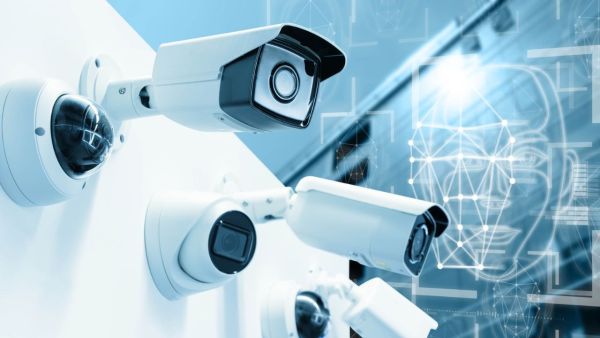
Sydney, 14 January. From security point of view, everywhere is now being monitored with CCTV cameras and drones, this prevents many major incidents from happening. In this process, wherever you go outside the house, you will find yourself surrounded by surveillance technology system. From paying yourself to exit the establishment to roads and stadiums, surveillance technology is being used everywhere. This widespread surveillance is often justified in the name of security. But our recent study published in 'Neuroscience of Consciousness' has revealed a disturbing thing.
Surveillance is not only changing our behavior, but also changing the way our brain works and how it operates beyond our vigilance. Our research shows that simply being aware of being observed can inadvertently increase our awareness of other people's gaze. These findings have potentially important implications for mental health and social interaction. These findings also prompt deeper consideration of how constant surveillance shapes us not only consciously, but also in the silent 'circuitry' of our brains.
Humans have developed a significant ability to recognize the gaze of other people in social situations. It helps us distinguish between friend and foe, interpret emotions, and understand intentions. Surveillance may subtly enhance this ancient survival mechanism, keeping our brains hyper-aware of social cues. A total of 54 people participated in our study, all of whom were graduate students. He performed a visual task while being monitored by CCTV cameras. Another group did the same thing without being monitored. Participants in both groups were shown pictures of faces that were either looking directly at them or away from them.
Using a method called 'continuous flash suppression', these faces were made temporarily invisible by presenting them to only one eye and with a rapidly flashing pattern in front of the other eye. The participants were able to recognize the faces under these conditions. The time taken by helps explain how our brain processes this information, before we are even aware of it.
Participants in both groups recognized directly looking faces faster overall, while participants who knew they were being watched became hyper-aware of these faces about a second earlier than the other group . Importantly, stronger responses to scenes were not observed when participants viewed neutral images such as geometric configurations. This specificity for faces highlights that monitoring is to a more fundamental neural circuit that evolved for social processing. It is not just a matter of increased vigilance; It is a targeted enhancement of our social circle.
This seemingly subtle change in perception can have serious consequences. Hyper-awareness of vision is a hallmark of many mental health conditions, including social anxiety disorder and psychosis. Individuals experiencing these conditions often feel deeply monitored, leading to increased anxiety. Our findings suggest that widespread surveillance may exacerbate these trends. This can add an invisible layer of stress to daily life and potentially lead to widespread mental health challenges. Many participants reported feeling relatively unperturbed about being monitored, even though their brains had clearly registered the surveillance.
This highlights how easily we normalize constant surveillance, accepting it as a ubiquitous feature of modern life. We rarely take cognizance of the presence of cameras. Yet our brains are constantly adapting to their presence and subtly shaping our perceptions.
Our findings are particularly timely in light of recent announcements by tech industry players for greater surveillance. For example, Larry Ellison, the world's fifth richest person and CEO of computer technology company Oracle, has presented his vision for AI-powered surveillance. This approach raises serious questions about the balance between security and personal freedom. Research has proven that people behave differently when they feel they are being watched. For example, they become more generous and less likely to engage in antisocial behavior. The findings of our new study highlight the potential unintended costs of constant surveillance.
Click to know lifestyle news
The eighteenth-century philosopher, Jeremy Bentham, proposed the Panopticon as a prison design, where the mere possibility of surveillance encourages self-regulation. Indeed, a large body of psychological research over the past 50 years has shown that The implicit social presence rather than the actual presence of the observer is the key to eliciting behavioral changes. As surveillance becomes increasingly woven into the fabric of our lives, we must pay attention not only to its intended effects, but also to its subtle, unconscious effects on our minds and on us.